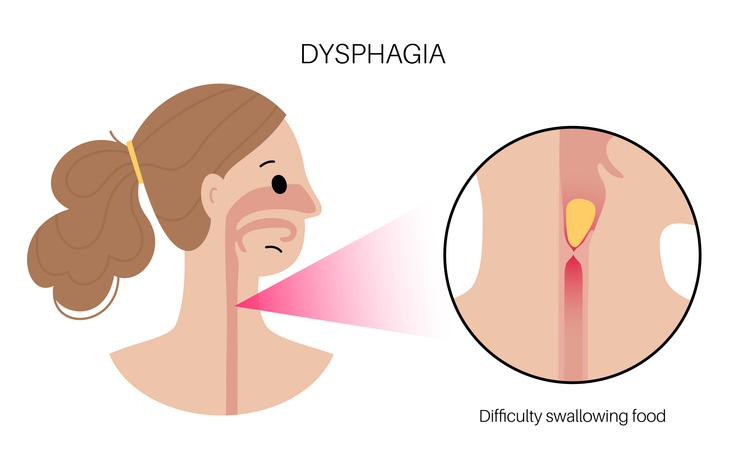Dysphagia, or difficulty swallowing, is a condition that can significantly affect your quality of life and overall health. The ability to swallow safely is essential not only for nutrition and hydration but also to prevent food and liquids from entering the lungs, which can lead to serious complications like aspiration pneumonia.
For those living with dysphagia, the challenge isn’t always visible to others. Unlike a broken bone or an obvious injury, dysphagia may not be immediately apparent, making it difficult for others to understand the struggles faced by those living with this condition. The person may appear “normal” on the outside, but internally, they may experience feelings of isolation and frustration as they navigate daily activities while managing their swallowing difficulties.
Common symptoms of dysphagia
- Pain when swallowing (odynophagia)
- Coughing or choking while eating or drinking
- Regurgitation, including nasal regurgitation
- Frequent respiratory infections, like pneumonia

Diagnosing dysphagia
Identifying the cause of a swallowing disorder is crucial in order to develop an effective treatment plan. At Welia Health, we have a team of certified Speech-Language Pathologists (SLPs) ready to guide you through the process. Your doctor may recommend a swallow study, a diagnostic procedure that can help identify the underlying issue and allow us to “see the invisible.” Once your swallow study is complete, you may be referred to a speech therapist, who will review the results and create a personalized treatment plan to address your unique needs.
“Dysphagia is often an overlooked and misunderstood condition, but with the right diagnosis and treatment plan, we can significantly improve a person’s ability to swallow safely and confidently. At Welia Health, our team is committed to providing personalized care that empowers patients to manage their condition and regain a better quality of life.”
Amy Miller, MA, CCC-SLP
Welia Health Speech Therapist
Treatment options for dysphagia
Treatment for dysphagia may include various therapeutic approaches designed to improve safety and function while swallowing. This can involve techniques like VitalStim therapy, evidence-based dysphagia treatment programs, compensatory strategies, or diet modifications. The goal is to retrain the muscles involved in swallowing to reduce the risk of choking and aspiration, ensuring safer and more efficient swallowing.
Welia Health can help
If you or someone you know is experiencing any of the symptoms mentioned above, it’s important to talk to your primary care provider. For more information or questions, please call Welia Health’s Speech Therapy department at 320.225.3371.













